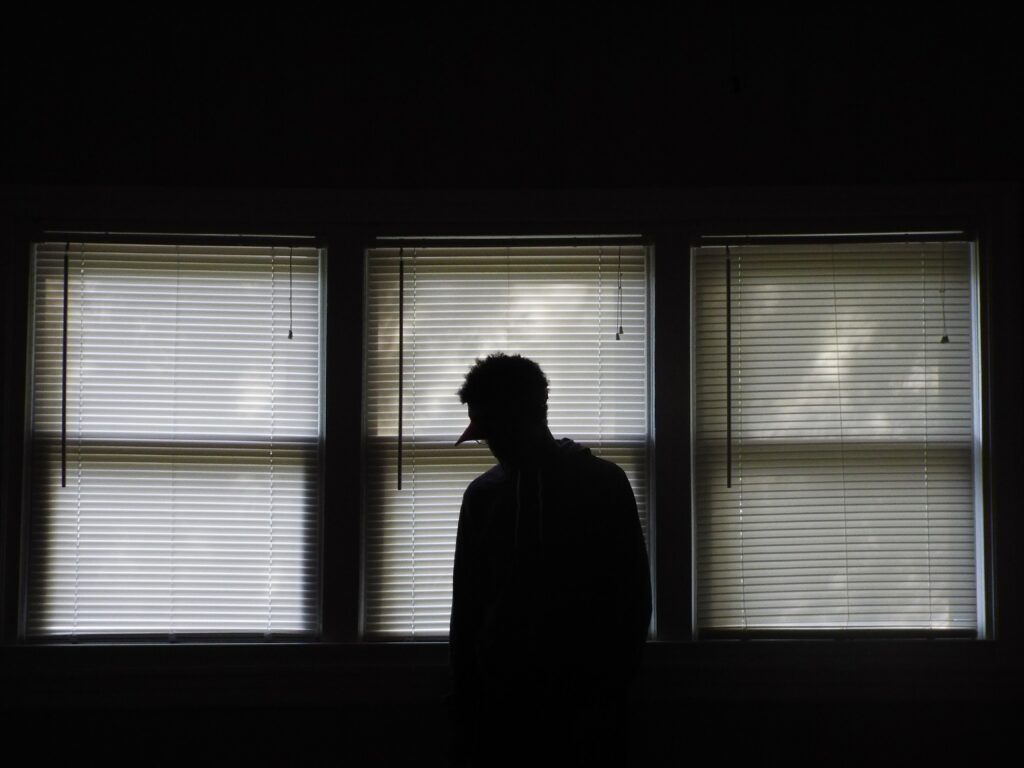Staying Stable While Grieving

This post is dedicated to my Dad, David J. Hoefs
My dad passed away on May 12th of this year (2017). He was the first person I knew who had bipolar disorder. While we knew his health was declining and he had some major health issues, we didn’t know that death was imminent. He had a heart attack and was gone immediately. So, when my sister called me that he had passed, it was shocking news. At that point, I knew I needed to do the work of grieving. After all, as a pastor, I have encouraged people to do the work of grieving, and now it was my turn to grieve.
My wife and I had just gotten to our son’s house for a visit the day before this all happened. So I had to return home right away. Flying back home gave me time to think and ponder. One of the first things on my mind was that I needed to pay close attention to any signs of depression, as I was grieving. I knew that the grief process could develop into or trigger depression, or destabilize my mood. I wanted to avoid becoming depressed if at all possible. I wasn’t sure I would know the difference between feelings of grief and depression. My experience up to this point had been dealing with the severe depression and grief from being forced to resign from the church that I was serving at the time. That was pure hell. And if I could avoid that, I wanted to do so at all costs. But I also knew that if you don’t do the work of grieving, the grief will deal with you at some point.
So on the two different plane flights home, I found myself emotional and sad, but also cognizant of the fact that because of having bipolar disorder, along with the process of grieving, that avoiding the destabilization of my mood might be a bit tricky. I promised myself that I would pay attention to the process and attempt to maneuver through the emotional sadness of losing Dad without stumbling into a depressive episode. And I was concerned that I would know the difference. I felt a little as though someone had put me on a rollercoaster ride that I didn’t choose, and I wasn’t sure how wild the ride might be.
So, I promised myself to do several things:
- I promised myself to feel what I was feeling; to go through it, but “pay attention” to all of it by purposefully taking the time to be self-aware. I was not going to attempt to avoid the grief, the sad feelings, and tears. To do this, if I was feeling sad or down, I decided I would ask myself, “Is this grief? Or is this depression?”
- I promised myself that if I was either confused by the feelings of grief and potentially feeling depressed, that I would not wait too long to talk to my Doctor, a therapist, or a friend. Too often I think we believe that we can handle it on our own and wait to be proactive.
- I promised myself that I would attempt to keep some balance between the work of grief and continuing to live. I’ve seen people just keep themselves too busy with life to avoid the pain. But, I’ve also seen people, who following the loss of a loved one, just sit down and stop living. Neither is good. I knew I needed to keep it as balanced as possible.
It’s been approximately ten weeks since the death of my father. So far, so good. As I experience the various aspects of grieving, they seem to come in waves. I can’t explain it any other way but as waves of emotions, not always sad emotions, but a range of emotions. Some of the waves are enormous and last a while, and others are small little waves. And it is impossible to know when the waves will hit. I also find myself thinking about my dad so much more than when he was living. Also, I find myself continually thinking about the fact that he is gone. There was no time to say good bye or prepare for it — which was good for him, but I would have loved to have the time to say goodbye.
One of the things my extended family decided to do when we were picking my Dad’s burial plot at the cemetery was to go ahead and buy ten plots that would all be in the same row. To know where my burial plot would be brought about more emotions to deal with; but many others have processed these things, and I saw it as simply my turn to do so.
Up to this point, I don’t think I’m experiencing any depression. Of course, you and I both know that could change. So I’m still paying close attention to what is going on with my feelings and emotions. There have been a few times through all this that I’ve had to set aside my emotions and carry on with my job. For example, my Dad’s funeral was on a Tuesday and on the Friday of that same week I had a wedding. I had to continue with daily living (my work as a pastor). Part of the work of grieving is balancing the emotions and feelings, and at the same time continuing with life. It’s a delicate balance.
Grief is a journey. And just like the journey of mental health wellness, the journey of grief looks different for each of us.
One thing I know is that my faith as a Christian has been critical for me as I’ve gone through the loss of my father. Because I believe I will see him again, it brings comfort and hope. For me, it would be challenging without this sure comfort and hope. So, I find myself leaning on the Lord a bit more than usual.
My hope is that my transparency about this might be helpful to some of you who might be going through the same thing. It doesn’t have to be the loss of a loved one; it could be the loss of a relationship or the loss of a job. It could be grief that is following your initial diagnosis of bipolar disorder. You might love someone who is struggling with bipolar disorder, and you’re grieving.
Grief is a journey. And just like the journey of mental health wellness, the journey of grief looks different for each of us. If you are going through a season of grieving, how are you doing? What has worked for you? Are you mindful of the difference between the sadness and emotions of grief vs. depression?
If you are grieving a loss in your life, please know you are not alone. I’m right there with you.






